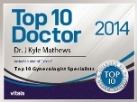Fertility Treatments depend on the cause, how long you have been infertile, the age of the partners and many personal preferences.
Fertility Treatment Options for Couples.
These approaches can involve steps related to the male or to the female, or both.
Timed intercourse. Having intercourse every other day around the time of ovulation may improve fertility. Too-frequent ejaculation can lessen sperm quality and actually decrease fertility. Sperm survive in the female reproductive tract for up to 72 hours, and an egg can be fertilized for up to 24 hours after ovulation.
Treatment for men: Often involves treatment by Urologist and may include treatment for:
Lack of sperm. If a lack of sperm is suspected as the cause of a man’s infertility, surgery or hormones to correct the problem or use of assisted reproductive technology is sometimes possible. For example, varicocele can often be surgically corrected. For blockage of the ejaculatory duct or in the case of retrograde ejaculation, sperm can be taken directly from the testicles or recovered from the bladder and injected into an egg in the laboratory setting.
Low Hormones. Replacement of hormones.
Fertility treatments for women:
Fertility drugs are the main treatment for women who are infertile due to ovulation disorders. These medications regulate or induce ovulation. In general, they work like natural hormones — such as follicle-stimulating hormone (FSH) and luteinizing hormone (LH) — to trigger ovulation. Commonly used fertility drugs include:
Clomiphene (Clomid, Serophene). The most common drug used, is taken orally and stimulates ovulation in women who have polycystic ovary syndrome (PCOS) or other ovulatory disorders. It causes the pituitary gland to release more FSH and LH, which stimulate the growth of an ovarian follicle containing an egg. This drug is usually taken day 3 thru 7 or day 5 thru 9 of your cycle and is effective in causing ovulation in about 80% of patients. The risk of twins with Clomid is 6%.
Human menopausal gonadotropin, or hMG, (Bravelle). This injected medication is for women who don’t ovulate on their own due to the failure of the pituitary gland to stimulate ovulation. Unlike clomiphene, which stimulates the pituitary gland, hMG and other gonadotropins directly stimulate the ovaries. This drug contains both FSH and LH, Follicle-stimulating hormone, or FSH. FSH works by stimulating the ovaries to mature egg follicles.
Human recombinant gonadotropin, (Gonal-F, Follistim, Menopur). Same as above (hMG) but created with recombinant DNA technology .
Human chorionic gonadotropin, or HCG, (Ovidrel, Pregnyl). Used in combination with clomiphene, hMG and FSH, this drug stimulates the follicle to release its egg (ovulate). It is often used to time ovulation for intrauterine insemination.
Gonadotropin-releasing hormone (Gn-RH) analogs. This treatment is for women with irregular ovulatory cycles or who ovulate prematurely — before the lead follicle is mature enough — during hMG treatment. Gn-RH analogs deliver constant Gn-RH to the pituitary gland, which alters hormone production so that a doctor can induce follicle growth with FSH.
Metformin (Glucophage). This oral drug is taken to boost ovulation. It’s used when insulin resistance is a known or suspected cause of infertility. Insulin resistance may play a role in the development of PCOS.
Bromocriptine (Parlodel). This medication is for women whose ovulation cycles are irregular due to elevated levels of prolactin, the hormone that stimulates milk production in new mothers. Bromocriptine inhibits prolactin production.
Fertility Drugs and the Risk of Multiple Pregnancy: Fertility drugs and the risk of multiple pregnancies. Injectable fertility drugs increase the chance of multiple births. Oral fertility drugs such as Clomid increase the chance of multiple births but at a much lower rate (6%). The use of these drugs requires careful monitoring using blood tests, hormone tests and ultrasound measurement of ovarian follicle size. Generally, the greater the number of fetuses, the higher the risk of premature labor. Babies born prematurely are at increased risk of health and developmental problems. These risks are greater for triplets than for twins or single pregnancies.
Fertility Surgery: Maybe indicated to address abnormalities of the uterus and/or fallopian tubes. Hysteroscopic and Laparoscopic techniques allow evaluation and treatment using minimally invasive techniques.
Assisted reproductive technology (ART): ART has revolutionized the treatment of infertility for couples not able to become pregnant by the above-mentioned means. IVF or in vitro fertilization is a highly specialized treatment and should a couple require Assisted Reproductive Technology, a referral will be made to a board certified reproductive endocrinologist.











